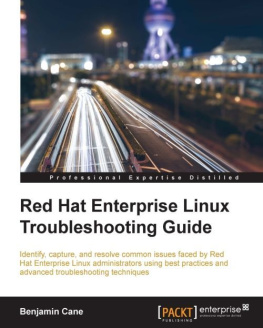Cane - Coding for Beginners: Advanced Methods and Strategies to Learn the Best Coding Practices
Here you can read online Cane - Coding for Beginners: Advanced Methods and Strategies to Learn the Best Coding Practices full text of the book (entire story) in english for free. Download pdf and epub, get meaning, cover and reviews about this ebook. year: 2020, genre: Computer. Description of the work, (preface) as well as reviews are available. Best literature library LitArk.com created for fans of good reading and offers a wide selection of genres:
Romance novel
Science fiction
Adventure
Detective
Science
History
Home and family
Prose
Art
Politics
Computer
Non-fiction
Religion
Business
Children
Humor
Choose a favorite category and find really read worthwhile books. Enjoy immersion in the world of imagination, feel the emotions of the characters or learn something new for yourself, make an fascinating discovery.

Coding for Beginners: Advanced Methods and Strategies to Learn the Best Coding Practices: summary, description and annotation
We offer to read an annotation, description, summary or preface (depends on what the author of the book "Coding for Beginners: Advanced Methods and Strategies to Learn the Best Coding Practices" wrote himself). If you haven't found the necessary information about the book — write in the comments, we will try to find it.
Cane: author's other books
Who wrote Coding for Beginners: Advanced Methods and Strategies to Learn the Best Coding Practices? Find out the surname, the name of the author of the book and a list of all author's works by series.
Coding for Beginners: Advanced Methods and Strategies to Learn the Best Coding Practices — read online for free the complete book (whole text) full work
Below is the text of the book, divided by pages. System saving the place of the last page read, allows you to conveniently read the book "Coding for Beginners: Advanced Methods and Strategies to Learn the Best Coding Practices" online for free, without having to search again every time where you left off. Put a bookmark, and you can go to the page where you finished reading at any time.
Font size:
Interval:
Bookmark:
- We need to create Objects before they can be used, and needs to be garbage-collected when they are no longer needed.
- When we use more objects, the more garbage-cycling happens so that the CPU cycle gets wasted.
- Reduce the temporary objects which are getting used inside the loops.
- Try to avoid the creation of temporary objects inside the methods which are called more frequently in the program.
- Collection objects should be pre-sized beforehand only.
- Objects should be reused wherever it is possible to do so.
- Empty the collection objects in case it is required to reuse them at a later stage.
- Reduce the number of objects being created inside the loop since creating objects costs both time and additional memory utilization.
- There are certain objects which return a copy of an object, or some methods do not return a copy.
- Avoid the use of Generic class exception inside the catch block. Instead, you can use the particular catch block for every try block based upon the error you might get in your program.
- Avoid the use of exception handling when it is not inside the control flow of the program.
- Try to minimize the use of exception handling unless there is a chance of exception going to happen in the code.
- Always use the exact subclass of your exception while using the throws method. It should be ArrayIndexOutOfBoundsException or FlieNotFoundException instead of using Exception.
- Exception handling should be avoided inside the loops. Try to place the loops in the try/catch blocks only.
- Prefer to use StringBuilder instead of StringBuffer as it avoids the cost of internal synchronization.
- Be cautious when working with String concatenation operations. Choose to use either + or StringBuilder.append appropriately based upon the requirement. If concatenation of a few items is required, use +. If there is a large set of items to be concatenated, then use the append method of StringBuilder. It improves the performance greatly in case of a larger item set concatenation.
- Relying on the finalize method to reclaim resources is a bad practice. Even if a finalize method is defined, the programmer should define another way of releasing the resources as the finalize method will be called just before the garbage collection and not when the object is out-of-scope.
- The use of finally block is a must to release the memory resources used in the connection, or closing the file to minimize the risk of exception getting raised at a later stage.
Font size:
Interval:
Bookmark:
Similar books «Coding for Beginners: Advanced Methods and Strategies to Learn the Best Coding Practices»
Look at similar books to Coding for Beginners: Advanced Methods and Strategies to Learn the Best Coding Practices. We have selected literature similar in name and meaning in the hope of providing readers with more options to find new, interesting, not yet read works.
Discussion, reviews of the book Coding for Beginners: Advanced Methods and Strategies to Learn the Best Coding Practices and just readers' own opinions. Leave your comments, write what you think about the work, its meaning or the main characters. Specify what exactly you liked and what you didn't like, and why you think so.


